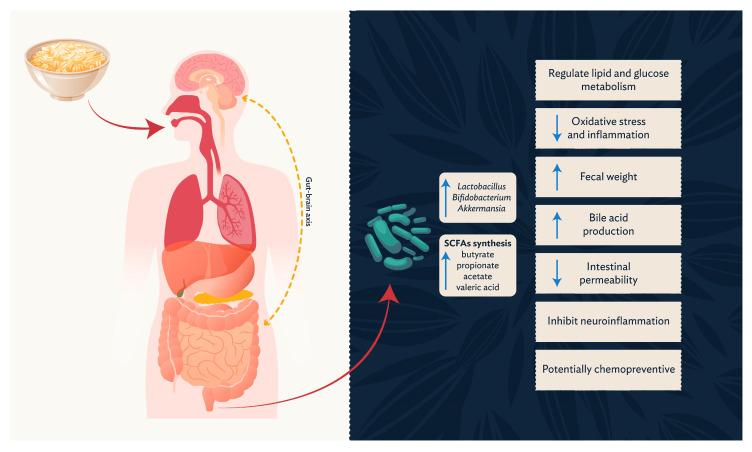Figure 2.
Effects of oat ingestion on gut modulation, including the increase of Lactobacillus, Bifidobacterium and Akkermansia. Further, oat intake results in increased butyrate, propionate, acetate, and valeric acid production. These microbes and metabolites are responsible for health benefits, such as regulation of lipid and glucose metabolism, decreases in oxidative stress and inflammation, increases in fecal weight, increased bile acid production, decreased intestinal permeability, inhibition of neuroinflammation, and potentially chemo-preventive properties. These systemic effects are possibly due to interactions within the gut–brain axis (dotted yellow arrow). The red arrows indicate the way of oat ingestion and digestion, and the blue arrows indicate an increase or decrease in markers of interest.

